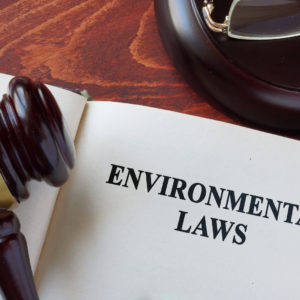This summer has been a difficult one for environmentalists hoping to use court cases to force energy companies like Exxon Mobil, BP, and Shell to pay for damages associated with global warming. In both New York and California state courts, highly publicized cases filed by the cities of New York, Oakland, and San Francisco failed to persuade judges. Now the cities of Oakland and San Francisco are continuing the fight by filing motions to appeal in the 9th Circuit Court, a move that could either quash the suits for good, or restart the whole process by kicking the decision back down to state court.
At the end of June, U.S. District Judge William H. Alsup dismissed the cases, saying that the courts were not the appropriate place to solve the climate change problem.
“The problem deserves a solution on a more vast scale than can be supplied by a district judge or jury in a public nuisance case,” said Alsup in his decision.
Now Oakland and San Francisco are hoping that the 9th Circuit Court will take a more favorable view. The appeal also signals that the fight by cities against energy companies is far from over. Regardless of the results of the 9th Circuit appeal, a further appeal to the Supreme Court is likely.
When Alsup’s decision was announced, representatives from both cities left open the option of an appeal, which would give them a chance to re-argue if the case should be heard in state or federal court, one of the key issues under review. Alsup ruled in May that the cases should be kept in federal court, though they had originally been filed in state court.
Energy analysts say that the appeal was largely expected. Given the high stakes of the case, and the amount of money that had already been spent on the lawsuit, it was unlikely that the cities would drop the cases. Furthermore, Hagens-Berman, the firm representing the two cities in this case, is working the cases on a 23.5 percent contingency fee basis, meaning that they have little incentive to give up easily.
Pushing the case to the 9th Circuit could throw a wrinkle into proceedings. It is seen as one of the most favorable circuits for the plaintiffs. It also means that Alsup’s decision to keep the case in federal court will come under review, as will his dismissal of the case.
Even so, the Oakland and San Francisco lawsuits face an uphill fight. Thus far, no court has ruled in favor of the common law nuisance argument that the cities are making. In a 2011 case, the Supreme Court ruled that global warming was a problem for the political branches to solve.
“It is highly likely the appeals court will concur with Judge Alsup’s decision that they should be dismissed. The U.S. Supreme Court, Judge Alsup and now Judge Keenan in New York have made it abundantly clear that the courts are not the appropriate venue to address this issue,” Manufacturers’ Accountability Project Executive Director Lindsey de la Torre told InsideSources, who expressed skepticism about the motives of the attorneys working on the case.
“These lawsuits stand to enrich trial attorneys at the expense of manufacturers and manufacturing workers and do nothing to advance meaningful solutions, which manufacturers are focused on every day.”

